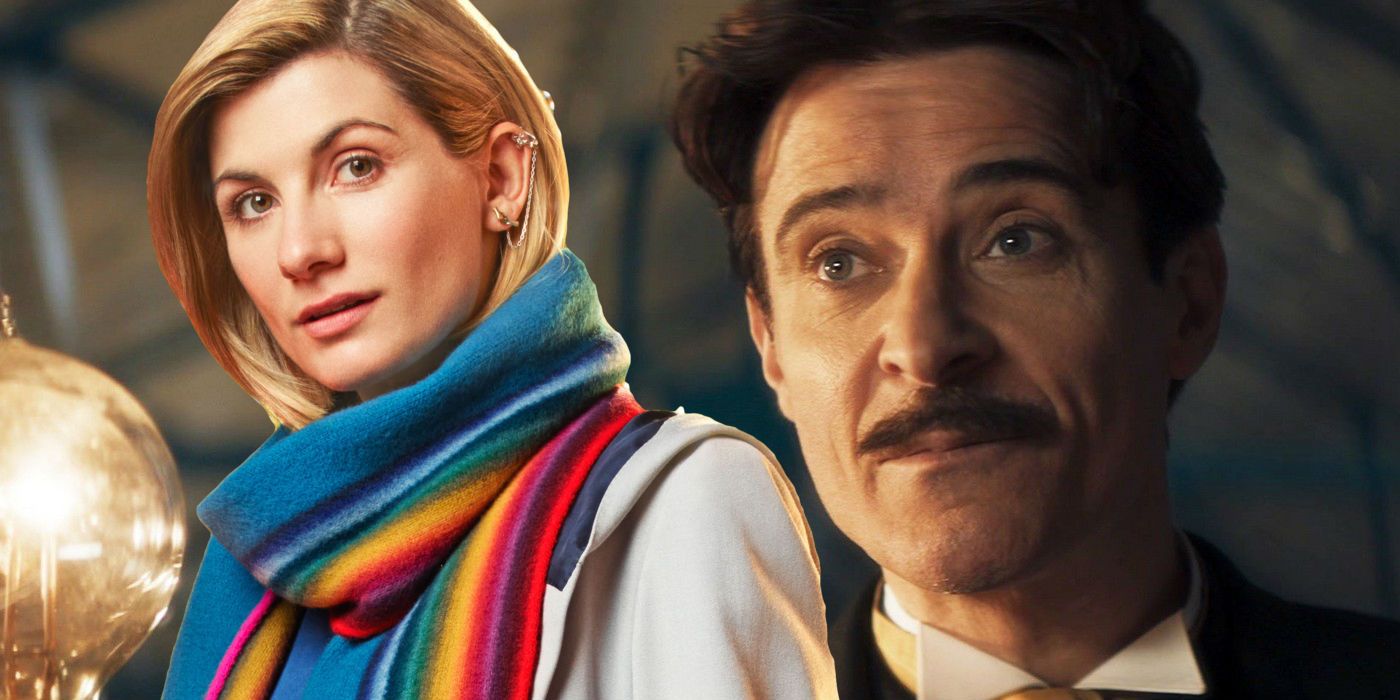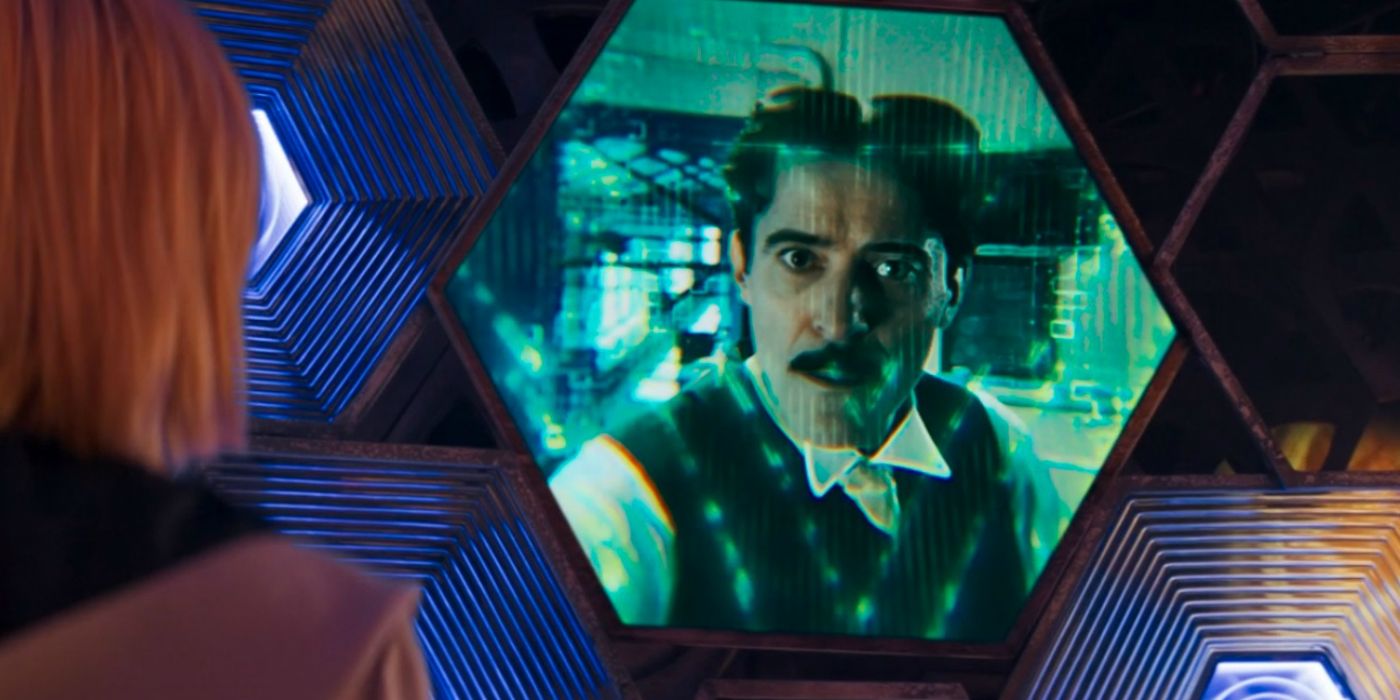Doctor Who's Tesla adventure was a fun episode with plenty of heart, but it also created a plot hole for season 12. Following last week's disappointing "Orphan 55," Doctor Who season 12 dusted itself down with the impressive "Nikola Tesla's Night of Terror," an episode that combined interesting historical elements, scary villains and a standout performance from Goran Višnjić as the titular inventor. The plot sees Tesla attract the attentions of the Skithra, who definitely aren't just recycled Racnoss, only for the Doctor and her companions to pick up on the disturbance and ride to the rescue. Working together with Tesla and Thomas Edison (played by Robert Glenister who, incidentally, once appeared opposite the Fifth Doctor), Jodie Whittaker managed to fend off the aliens and spare Tesla from abduction.
By the show's own admission, Doctor Who isn't a watertight ship when it comes to narrative consistency and, with over 50 years of canon to consider, that's probably fair enough. The season 12 premiere even alluded to this when the Master claimed the Doctor's history was full of inconsistencies, but still very, very interesting, neatly summing up the series' stance on the various plot holes that have accumulated over the years. But while it's easy to forgive Doctor Who for playing with lore introduced decades ago (the Doctor's age or the Cybermen origin, for example), season 12 has already contradicted itself within the space of 4 episodes.
In season 12's opening two-partner, "Spyfall," the Doctor teams up with Ada Lovelace and Noor Inayat Khan to stop the Master turning humanity into glorified USB sticks. Since the duo have traveled in the TARDIS and seen futuristic technology, the Doctor wipes their minds after the adventure, removing anything Ada and Noor "shouldn't have knowledge of." This act set somewhat of a precedent for Doctor Who; previous regenerations had always been happy to leave historical figures alone after meeting them, but with a new season and a new decade underway, perhaps the Doctor was simply learning to be more cautious in her old age.
However, it seems Time Lords stick to their New Year's resolutions as badly as humans do. In season 12's fourth episode, the Doctor takes Tesla and Edison for a ride in the TARDIS, and they are introduced to the technology of Silurian, Venusian and Thassorian descent over the course of the adventure, as well as the Doctor's own Gallifreyan contraptions. This knowledge in the hands of Tesla and Edison has the power to alter the course of humanity, so one might expect the Doctor to wipe their minds also. Come the final scene, however, Tesla asks the Doctor to see more of the TARDIS, and is refused, before everyone happily parts ways. It's clear that both Tesla and Edison have retained their memories of encountering the Doctor.
Surely, this futuristic knowledge is as dangerous in the minds of Tesla and Edison as in Lovelace and Khan's, so why would the Doctor wipe one set and not the other? The only possible in-narrative explanation is that Tesla and Edison stayed within their own timeline, whereas Lovelace and Khan accompanied the Doctor in 2020, and therefore their knowledge could be more likely to cause problems. But the Doctor is quite clear where she tells Ada that she's wiping it's all the knowledge that could change history - the TARDIS, the Doctor, the technology, not just the actual visit to the future. If this is the case, then there's no reason not to do the same to Tesla and Edison, since such storied inventors could certainly take inspiration and ideas from the alien technology they'd been made privy to.
Thinking behind-the-scenes, the likely explanation behind the Doctor's memory wiping antics in "Spyfall" was to remove any possible suggestion that the women involved weren't completely responsible for their own achievements. Since Whittaker took over the TARDIS keys, Doctor Who has, quite rightly, been keen to explore more of history's famous females, but to imply that these figures only succeeded because the Doctor gave them an advantage might not have been well-received.
Doctor Who continues 26th January with "Fugitive of the Judoon" on BBC and BBC America.


